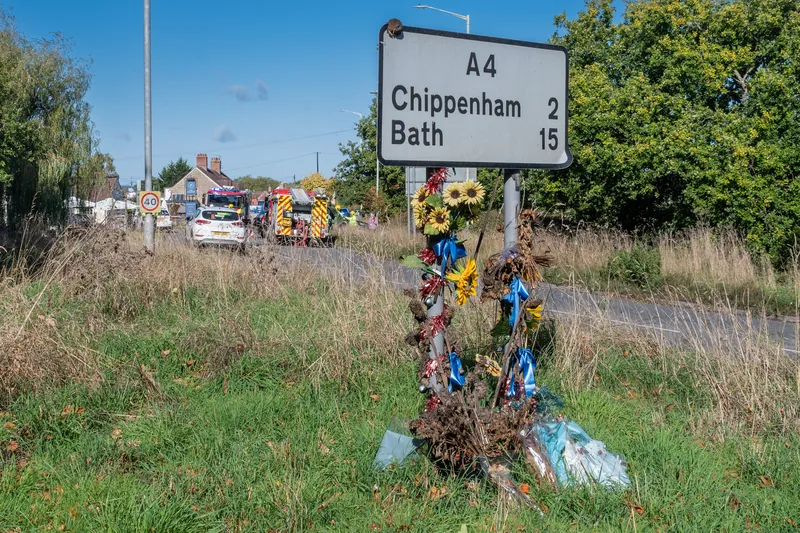London’s first interactive digital collision map has been launched by the Mayor and Transport for London (TFL) as part of a continued drive to improve road safety awareness to reduce the number of casualties in the capital.
The London Collision Map uses extensive data, collected by the police and held by TfL, to shine a light on road collisions in local areas. This creates a useful new way to inform road users about junctions with high collision histories and aiding improvement work in line with TfL’s co
September 22, 2015
Read time: 3 mins
London’s first interactive digital collision map has been launched by the Mayor and 1466 Transport for London (TFL) as part of a continued drive to improve road safety awareness to reduce the number of casualties in the capital.
The London Collision Map uses extensive data, collected by the police and held by TfL, to shine a light on road collisions in local areas. This creates a useful new way to inform road users about junctions with high collision histories and aiding improvement work in line with TfL’s commitment to improve transparency for customers and stakeholders.
The map allows anyone to easily search for collisions anywhere within London, providing information about when, where and how severe incidents were, which date back to 2005. The aim is to help raise awareness of road conditions and encourage road users to take extra care at junctions.
It comes as the Mayor and TfL publish their Annual Road Safety report, which highlights the safety performance and improvements that have been made on the Capital’s roads in the last 12 months. During 2014, the number of people killed or seriously injured (KSI) fell to its lowest level since records began.
The report also outlines the Mayor’s new target, set earlier this year, to halve the number of KSIs by 2020 compared to the Government base line – meaning a reduction of more than 14,000 deaths or serious injuries over the life of London's road safety plan to 2020.
TfL already uses collision data to identify areas where additional road safety improvements are required and works closely with the police to increase the amount of data it has access to. By combining it with traffic flow data, traffic counts and bus information, they are able to identify locations where more targeted enforcement and additional engagement with local communities can be made to improve safety.
The collision data is made available to the public with provisional collision data updated at regular intervals throughout the year. In the coming months, an application programme interface (API) will be released to enable software developers to create applications that will help drive further improvements in road safety.
Academics, researchers and TfL will also be able to blend the data with other sources to look for wider, long-term trends across London and the South East. Further changes to the TfL webpage are also planned in the future to help all Londoners make the best use of this data.
The London Collision Map uses extensive data, collected by the police and held by TfL, to shine a light on road collisions in local areas. This creates a useful new way to inform road users about junctions with high collision histories and aiding improvement work in line with TfL’s commitment to improve transparency for customers and stakeholders.
The map allows anyone to easily search for collisions anywhere within London, providing information about when, where and how severe incidents were, which date back to 2005. The aim is to help raise awareness of road conditions and encourage road users to take extra care at junctions.
It comes as the Mayor and TfL publish their Annual Road Safety report, which highlights the safety performance and improvements that have been made on the Capital’s roads in the last 12 months. During 2014, the number of people killed or seriously injured (KSI) fell to its lowest level since records began.
The report also outlines the Mayor’s new target, set earlier this year, to halve the number of KSIs by 2020 compared to the Government base line – meaning a reduction of more than 14,000 deaths or serious injuries over the life of London's road safety plan to 2020.
TfL already uses collision data to identify areas where additional road safety improvements are required and works closely with the police to increase the amount of data it has access to. By combining it with traffic flow data, traffic counts and bus information, they are able to identify locations where more targeted enforcement and additional engagement with local communities can be made to improve safety.
The collision data is made available to the public with provisional collision data updated at regular intervals throughout the year. In the coming months, an application programme interface (API) will be released to enable software developers to create applications that will help drive further improvements in road safety.
Academics, researchers and TfL will also be able to blend the data with other sources to look for wider, long-term trends across London and the South East. Further changes to the TfL webpage are also planned in the future to help all Londoners make the best use of this data.







